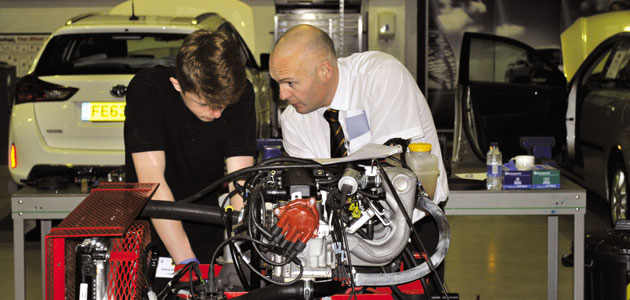
The IAM service and repair professional has, and will likely continue, to crave the respect of the general public; difficult when the trade’s image has suffered years of erosion caused by unfavourable media-created perceptions of the industry and a business-to-customer relationship that is based primarily on trust. With no mandatory standards or licences in place (those that do exist are purely voluntary) to force garage owners and technicians to comply, it is inevitable that for every business that does things properly (good business practice and investment in training and equipment to improve/evolve technician competency) there will be one that chooses to exploit these loopholes and, in doing so, will likely cause further stains to appear on the reputation of everyone else.
Interestingly, rather than fleeing to the hills at the first sign of regulation, the newest generations of garage owners/technicians are warm to the potential of mandatory licensing as a mechanism to distinguish those who are continuing to update their skills at both a business and workshop level from those that choose not to. A poll on PMM’s website earlier this year asked visitors whether they would like to see a mandatory license for practicing technicians introduced by the Government – 65% of respondents were for the idea while 35% were against it. Although the survey was taken from a relatively small demographic of IAM professionals, it still points to the fact that the industry – more so than ever – wants to shake off the tag of the ‘lesser’ relation when compared to other skilled professions.
This moves us on to a recent conversation we had with a PMM reader. The technician in question had booked a vehicle in for its annual service and a time/date has been agreed with the customer. An hour after the anointed slot had passed, and with no sign of the customer on the horizon, the garage finally managed to make contact with the owner whose only repost was: ‘Oh, I forgot’!
Mistakes do happen, but this blasé reaction to this appointment sums up the way that many customers look at the trade. No thought to the business that the garage may have lost out on and a presumption that they could simply book another slot in the near future with no harm done. Had the appointment been a visit to a dentist or doctor, the result – and we’re guessing actions of the customer – would have been entirely different.
A fine for the missed dental appointment and a lengthy wait to get in to see a doctor or specialist would’ve likely ensured the customer showed up on the agreed date. In an ideal world the garage would’ve told said customer that it would be another 5 weeks before the car could be seen, but we know that the economic reality – not to mention the fear that the customer will go elsewhere – makes it highly unlikely this will happen
It would be silly to compare service/repair technicians with health specialists as they are entirely different disciplines, but the example above goes some way to showing why professionals in the IAM are keen for regulation that could go some way to improving the way that the customer views the modern mechanic. This in turn will open the door for technicians to charge accordingly in line with their skill-sets.
Only time will tell, but mandatory regulation may NEVER happen, that is why an initiative like the IMI’s ‘Professional Register’ can only be a positive step in the right direction. Although the scheme is voluntary, it offers the first real ‘searchable’ mechanism for consumers to recognise the skills and training of a technician that is working on their vehicle. We’d highly recommend that you take a look and see whether you have the requisite skills and qualifications to apply.









